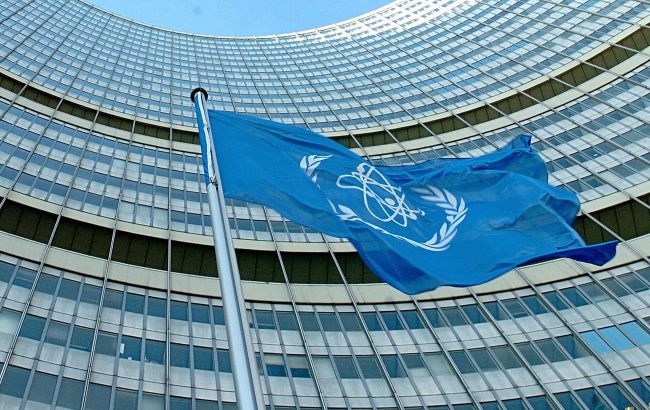IAEA evacuates inspectors from Iran: Bloomberg explains reason
 The International Atomic Energy Agency no longer monitors the situation in Iran (Photo: Getty Images)
The International Atomic Energy Agency no longer monitors the situation in Iran (Photo: Getty Images)
For the first time in 20 years, the International Atomic Energy Agency (IAEA) has halted inspections of Iran’s nuclear facilities due to a new law imposed by the Ayatollah regime. Western countries are preparing a strong response, according to Bloomberg.
On Thursday, July 4, the IAEA announced the withdrawal of its last inspectors from Iran, further intensifying the information blackout surrounding the nuclear program of this Middle Eastern country.
A Western diplomat, speaking on condition of anonymity, told the publication that the inspectors were recalled due to a new Iranian law that could potentially criminalize the activities of international nuclear monitoring missions. This decision is expected to provoke a negative reaction from Western governments.
The IAEA statement says that all agency staff safely left Tehran on Friday and arrived at headquarters in Vienna. The document also emphasizes the critical importance of promptly resuming negotiations with the Iranian side.
This decision was made the day after Iran’s Foreign Minister Abbas Araghchi assured readiness to continue cooperation with the agency, raising questions about the scope and legal status of the new law.
Under the new legislation, cooperation with the IAEA is temporarily suspended for three months for review.
Strong accusations
Relations between Iran and the IAEA, as well as its Director General Rafael Grossi, sharply deteriorated following the start of Israeli attacks on Iran, which the US joined on June 22 by dropping more than a dozen 30-ton bombs on key nuclear facilities.
Iranian officials accused the agency and Grossi personally of complicity in Israel’s actions, claiming that the latest IAEA report was used as a pretext for the attacks. Grossi categorically denied these accusations.
According to Bloomberg, concerns about safety have increased in recent days among the small group of inspectors still remaining in Tehran, especially after Iran called for Grossi to be held accountable.
According to a source, the inspectors have already left their official hotel and were relocated to a classified location. Their departure coincided with the first day of Iran reopening its airspace to commercial aviation after a three-week hiatus.
Until now, 274 accredited IAEA inspectors had conducted inspections to verify the storage of 409 kilograms of uranium enriched to nearly weapons-grade level. The current location of this uranium is unknown.
The publication noted that this is the first time since Iran began uranium enrichment nearly twenty years ago that IAEA inspectors were forced to leave the country after conducting around 500 inspections in 2024 alone.
Iran’s permanent representative in Vienna stated that the airstrikes by Israel and the United States have caused irreparable damage to the Treaty on the Non-Proliferation of Nuclear Weapons (NPT) - an international agreement that guarantees non-nuclear-weapon states access to relevant technologies in exchange for IAEA inspections.
Threat to the ceasefire with Israel
Although Iran has not yet withdrawn from the IAEA, it may justify its right to suspend monitoring under the provisions of the Vienna Convention on the Law of Treaties, which allows parties to suspend cooperation in case their rights are violated. It is widely recognized internationally that attacks on nuclear facilities violate legal norms.
The further response to Iran’s legal arguments, particularly from the IAEA, could influence whether the ceasefire with Israel holds. Hostilities ceased on June 24 after 12 days of conflict, but neither side rules out their resumption.
To deter a possible new attack, Iran might use the uncertainty about the location of its highly enriched uranium to affect how events unfold.
“To help deter against a renewed assault, Iran could use uncertainty over the whereabouts of its highly enriched uranium to try to dictate events. For the US and Israel to gain knowledge of the state and location of the stockpile, physical inspections and verification will need to be carried out, most likely via negotiated access for the IAEA,” Bloomberg noted.
Attacks on Iran’s nuclear facilities and their consequences
After the large-scale airstrikes on Iran’s nuclear program sites in Fordow, Natanz, and Isfahan on June 22, the US declared the complete destruction of Iran’s nuclear program.
Following this, Iran fully halted negotiations with the US on a new nuclear deal, limited cooperation with the IAEA, and did not rule out withdrawing from the Non-Proliferation Treaty (NPT).
Washington is ready to resume negotiations on the nuclear deal but demands that Iran completely abandon its plans to develop nuclear weapons.
The US has also called on Tehran to renew cooperation with the IAEA.


